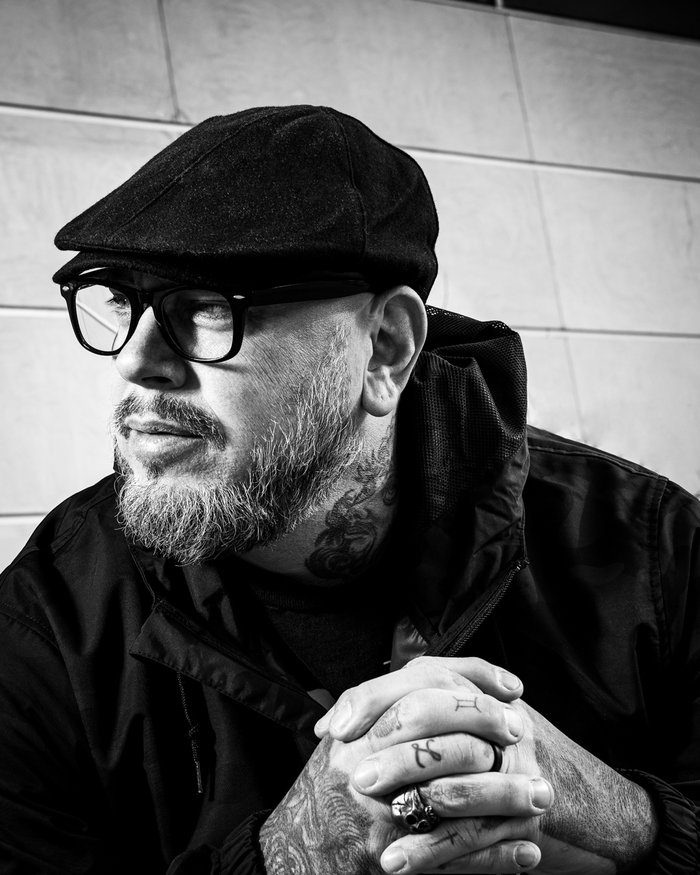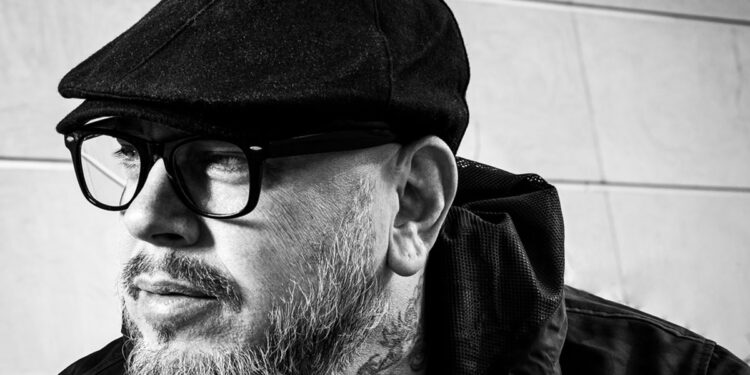Everyone remembers where they were the day live music died. It was March 13, 2020, and everything—including concerts—shut down as COVID-19 pitted humanity against the first 21st Century pandemic.
For Omaha’s Chad Ward, and nearly 12 million other roadies working worldwide, no concerts meant no money. Ward certainly remembers where he was mid-March 2020. He just got home from a two-month European tour with Slipknot. Serving as a backline tech for the heavy metal band, Ward was responsible for setting up the drums each show and was taking a break before another leg in southeast Asia.
Then came the body chills and fever. He was not tested for COVID-19 at the time, however, he said he is quite positive he had it.
“My wife likes to say I was patient zero. I was very close to hospitalization,” Ward said. “My health has recovered but financially I haven’t. All my touring continues to be canceled.”
Nearly a year later, auditoriums worldwide still sit empty. Millions of seats are untouched. Silence making its deafening crawl from front row to the nosebleeds—day after day, month after month. The entirety of the live music industry ceased to exist practically overnight, and that’s what motivated Ward to create Roadie Relief.
The nonprofit asks for donations online, with a mission to provide financial aid to those in the live entertainment industry who lost their jobs because of the pandemic. As of last December, the organization had raised nearly $40,000 for roughly 115 roadies from all corners of the globe.
“Very few people understand this is our career,” Ward said. “People plan for rainy days, but nobody planned for this. Everybody’s savings accounts are dwindling to nothing—so I had to help.”
The solution isn’t as easy as applying for unemployment benefits either. Many live entertainment workers struggle to receive that support because states require them to first apply for jobs in their field. However, without tours and large events, there are no jobs to apply for.
The idea for Roadie Relief was born in the most emblematic way possible for 2020—over a Zoom call. Ward was chatting with others in the industry about their financial frustrations and brainstormed the idea to start a GoFundMe page. In two weeks, the page made only $100.
It was back to the virtual drawing board. That’s when Ward teamed up with Jane Donald, a tour manager located in Nashville. They met nearly a decade ago while working as production coordinators for the Foo Fighters. Ward served as the brains and industry connection for Roadie Relief while Donald handled all things administrative and design. Together, they launched a website and began getting the word out late last summer.
“There’s been very little expense getting this off the ground because it’s all done remotely,” Donald said. “Every penny you’re seeing donated is divvied up and dished out. This is a true labor of love for the industry.”
To collect funds, Roadie Relief does more than just ask for donations. Visitors can purchase merchandise, such as T-shirts or a cover of Faith No More’s song “We Care A Lot,” performed by members of bands from Run DMC, Korn, and others.
Artists and management teams further got involved by donating items to an online silent auction at the request of Ward. The first round of bidding included autographed memorabilia ranging from posters of artists such as Alice In Chains and The Weeknd to instruments from Foo Fighters, Papa Roach, and AWOLNATION.
A replica of Eddie Van Halen’s guitar sold for $19,500 during a separate raffle. Sacha Dunable, a renowned guitar maker in Los Angeles, made the instrument following Van Halen’s death in October and began looking to donate it to a charity. A few of his road crew buddies suggested Ward’s newly formed nonprofit, and Dunable agreed it was the right fit. More than 780 tickets at $25 a pop were bought for the online raffle.
“I was expecting we’d get maybe $2,000 to $3,000,” Dunable said. “A lot of people who work in the industry are friends I’ve known for decades at this point. I wanted to help them in some way.”
Roadies in need of help can fill out an application on the nonprofit’s website, including details of previous work and references.
“Whether you’ve been touring 20 years or three, everyone is going to get the same amount,” Ward said. “It’s like we’re an extended family. You live with these people for years on end. Then, all of a sudden, you don’t know when you’re ever going to see each other again.”
Ward began his career as a roadie 27 years ago while working at Omaha’s now closed Sharkey’s Brewery & Grill. During a performance by 311, Ward was chosen to help the band on and off the stage, since he grew up with guitarist Tim Mahoney. The next day, he woke up on his couch to a life-changing phone call from lead vocalist Nick Hexum. The band wanted Ward to join them on tour.
Since then, he has worked as a technician, tour carpenter, and production manager alongside acts as varied as Korn, Kelly Clarkson, and Drake.
“I’ve seen so many amazing things around the world, but the roadie lifestyle isn’t drugs, sex, and rock ‘n’ roll. We work 18-hour days,” Ward said. “Being away from the wife and three kids is the biggest downfall. Still, the love of music makes it all worth it.”
Ward knows that love will outlast the pandemic and someday stadiums will be full again, and the roar of the crowd will soon call him back. Until then, he hopes Roadie Relief helps dozens of event workers bridge the gap from now until showtime.
“Think about every concert you’ve been to and walked away with a smile. It’s not the artist out there chalking the floor, changing the drumheads and fixing amps at 6 a.m. The roadies make it all happen,” Ward said. “This is about helping those who’ve helped you create those unforgettable music memories.”
Visit roadierelief.org for more information.
This article was printed in the March/April 2021 edition of Omaha Magazine. To receive the magazine, click here to subscribe.












